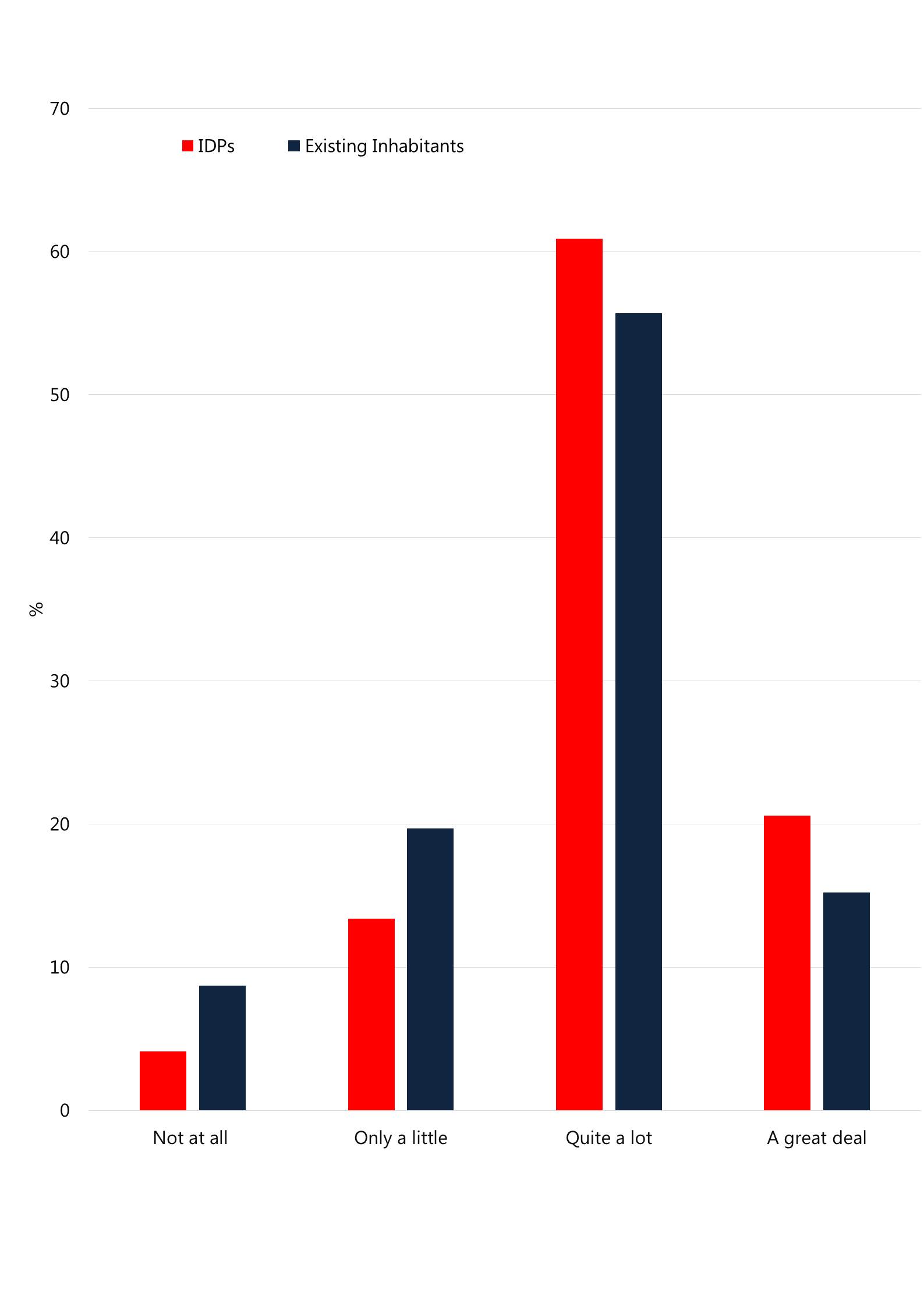Distributing parenting information in conflict
How can we reach families with parenting information to support them?
Our previous study conducted with Syrian refugee parents and children showed that children in the Syrian conflict are at increased risk of mental health difficulties in both the short- and long-term. Parents are central to protecting children in war from psychological harm, but caring for children in this context is challenging. Parents are very keen to access information on how best to parent their children when displaced to refugee camps once beyond the immediate extreme stress of displacement.
Humanitarian agencies are so stretched by providing basic food, shelter, sanitation, medical care and clean water, addressing families' psychological needs is an enormous challenge. The scale of the Syrian conflict makes it impossible to provide individual face-to-face interventions for all families at risk of mental health difficulties, especially to those who remain internally displaced. One way of delivering psychosocial support in this context is to find ways of providing information to families at a population level to maximise reach.
Staff working for Generation Freedom, a sub-organisation of non-governmental organisation WATAN (who provide humanitarian assistance to Syrian refugees) were asked how they thought families could be reached. One staff member suggested that leaflets providing written information to parents could be distributed alongside the routine distribution of bread from bakeries set up as a relief supply route to displaced Syrian families. This could reach the maximum number of families possible at a population level .
This suggestion made us realise the potential impact using this approach could have.
The Bread Wrapper Study
In summer 2014, we tested the feasibility of distributing information to parents by inserting leaflets with context-sensitive parenting information inside the bread wrappers of bread routinely distributed from bakeries inside Syria to local communities of displaced Syrian families. We inserted a brief questionnaire with the leaflets so that we could find out if it is possible to engage parents in research and for them to complete and return questionnaires to us. Being able to collect data is critical to being able to evaluate whether psychosocial intervention delivered to families is effective at reducing child and parent mental health difficulties. The questionnaire is also being used to find out how useful parents found the information in the leaflets. This will help us to modify and tailor parent interventions to the needs of families.
Our Results
3000 parenting leaflets and questionnaires were distributed to families inside the northern part of Syria near the Syria-Turkey border. This demonstrated that the bread wrapper approach has great potential as a means of getting psychological support to parents in the future. 1780 questionnaires (59.5%) were completed and returned by parents. This provides us with hope that using the same approach we would be able to evaluate whether the support we provide benefits families. 81.5% of caregivers rated the overall usefulness of the leaflet as either "quite a lot" or "a great deal".

Four hundred respondents wrote additional comments on the questionnaire. Of the additional comments that caregivers wrote on the questionnaire:
- 289 (69%) comments were positive.
"The advice leaflet provides great direction on how to parent your child effectively. It tries to bring parents back to the correct parenting and that which is least damaging to them. We will try these so we can try to bring normality back to their lives during these very challenging times."
"This is great if we follow it accordingly. It has relaxed us and shown us what to do. We can reduce anxiety and fears in our children and make them feel safer."
- 67 (16%) comments included suggestions for modifications.
"I wish there was more attention and details on how to deal with fear: our children are really suffering from this."
- 36 (9%) comments were about children’s needs.
"I have four children. They have alll had nervous breakdowns. The first, if she hears an air strike, her face whitens resembling chalk..."
- 16 (4%) comments related to faith.
"We turn to god for support."
- 11 (3%) were excluded.
These results indicate the potential for brief written material to assist families in better caring for their children in a challenging environment.
Overall, this study demonstrates the feasibility of a means of both distributing information and receiving responses which fitted readily into existing humanitarian frameworks. It presented a relatively low cost approach to help families provide warm, supportive parenting and strengthen community-based support.
